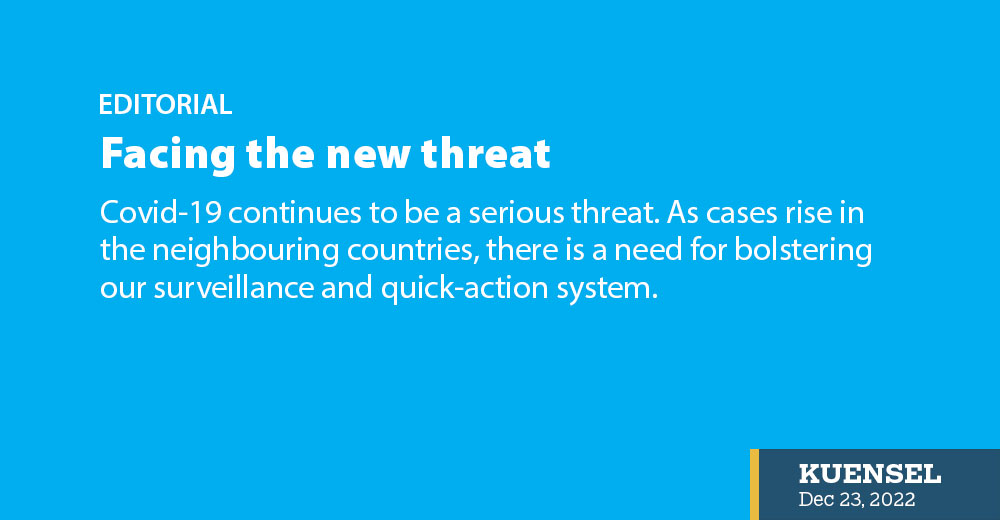Covid-19 continues to be a serious threat. As cases rise in the neighbouring countries, there is a need for bolstering our surveillance and quick-action system.
Our closest neighbour, India, is tackling the Omicron sub-variant BF.7, a strain driving China’s current surge of cases. The variant has already been detected in the US, the UK, and European countries such as Belgium, Germany, France, and Denmark.
What we know is that India is ramping up genome sequencing as a proactive measure to study the emergence of new variants of the virus.
The real danger facing us is that because we do not have many cases, we assume that Covid-19 is no longer a threat. The biggest scourge of the century is still a significant threat; we cannot take it lightly.
Viruses can retreat and revive, which means if we do not take necessary precautions, we can be infected again. Some scientists have gone on record to say that the current wave could be as devastating as the last one we experienced. While some may take it lightly by saying that the whole new development needs concrete study, we may be making ourselves more vulnerable to Covid-19.
What cannot be argued is that we become easily complacent when case numbers drop. In many places in Bhutan, including Thimphu where population density is very high, simple and effective protocols such as wearing face mask and the requirement to wash hands have disappeared altogether.
Information, education, and communication are still very important. Covid-19 is here to stay and terrorise us for some time. What the health sector has done so far deserves praise, but to do more is our responsibility, each individually—we must prevent the spread of the virus as much as possible.
Sensible restrictions and meaningful requirements still are very much relevant. It could be a case of penny-wise and pound-foolish otherwise. According to some experts, 10 percent of the world’s population is likely to be infected in the next three months with the number of death could touch to millions.
The officials assure us that the surveillance team and the Covid-19 Technical Advisory Group are ready if there is a sudden increase in cases. Random screenings are being carried out at the points of entry and health workers.”
We have just averted the threat but we are still vulnerable. Disruptions have been costly.


